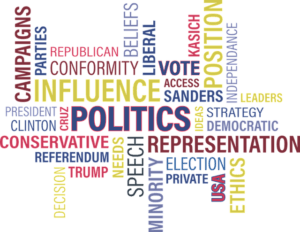The world is becoming more familiar with industrial hemp facts, and the fact one is people have worked with the hemp plant throughout history.
Specialists at MIT found evidence that hemp was likely the earliest plant exploited for textile fiber, tracing hemp all the way back to 8000 B.C. Across history, the hemp plant has been utilized in papermaking, oil creation, and homegrown enhancements.

However, it’s not without debate, and the hemp plant is banned in several nations. Hemp was generally utilized in early America. At this point, its development was declared illegal in 1970 as a point of the Controlled Substances Act. The country’s prohibition on modern hemp growing was at last lifted in 2018, with full USDA Farm Bill guidelines introduced the following year.
Industrial Hemp Farm Bill
The farm bill section has made way for more prominent maintainability in different industries, from construction to the beauty industry and beyond. All things considered, hemp is helping drive the push towards preferred manageability in practically every phase of our lives. We should study the characteristics that make hemp an asset. And how businesses overall link the versatile plant for their potential benefit.

Industrial Hemp Facts Benefits
In present-day times, hemp’s flexibility traverses well past oil and textile materials, in any event, working to improve the planet’s wellbeing. First off, hemp production has been found to purify the soil. And with a growing season of three to four months is essentially less when compared with different plants used in textile materials. Moreover, healthy plants require little water and few pesticides to grow, effectively reducing environmental impact.
Green Goddess Supply sells Premium Smoking Tools and Accessories.
SHOP NOW!
Furthermore, as environmental change’s adverse impacts become immediately evident, hemp is progressively a replacement for different materials that cause harm to the climate.
People can find a stunning example of hemp facts inside the construction industry, where hemp-based choices are currently broadly available, rather than concrete, which typically contains dangerous synthetic compounds and other harmful elements. Environment-friendly companies and property owners can put resources into strong yet lightweight bricks made of hemp and many kinds of suitable building materials.

Recently, hemp has become popular in the domain of plant-based, fortifying food sources. Throughout 2014 and 2019, the worldwide hemp-based food business expanded at a pace of about 7%. The rise of hemp-based food sources, for example, protein powders and dairy choices. It is generally credited to vegetarian food products’ continued promotion, especially those high in protein.

Embrace Supportability, Recognize Greenwashing.
Yet, for organizations that guarantee help manageability, how could shoppers be confident they’re getting what they pay for? Maintainable living is stylish here in the 21st century. And that reality accompanies huge disadvantages, particularly the pervasiveness of greenwashing. Greenwashing happens when an organization guarantees that their product or service is an easy elective when that isn’t, indeed, the circumstance.

Greenwashing is a perfect illustration of exploitative promotion. Sadly, widespread in various enterprises, including fashion, house cleaning, beauty, and personal care. To recognize greenwashing, customers ought to be watching out for alleged “popular expressions” that are basically pointless. Natural and botanical are two of the most well-known popular expressions utilized in greenwashing.
What’s more, without some proof or outsider analysis to back them up, advertising popular expressions demonstrate that an organization or item isn’t what they appear. To avoid accidentally supporting greenwashing groups, start by reading product labels and familiarize yourself with standard manageability pointers. For instance, a mark guaranteeing a product as USDA organic or hemp’s presence on an ingredient list shows that an organization is committed to economic classifications.

Transforming Our Relationship With Hemp
Regardless of what we think about hemp and its benefits, there’s still a lot of work to complete. Hemp is firmly identified with the marijuana plant, which is known for its psychoactive properties. Cannabis has been broadly defamed and regulated. And viewed throughout the world and remains illegal in the U.S., at any rate on a government level.
However, for every one of their similarities, hemp, and marijuana plants are very different. The dynamic element in cannabis is tetrahydrocannabinol (THC), responsible for a person’s high. In an analysis, industrial Hemp’s THC content should stay below 0.3% for the plant to be seen as legitimate in the U.S. market.
It’s imperative to take note that the status of hemp sanctioning overall is continually in transition. Additionally, buyers can expect laws and guidelines identified with hemp, cannabis, and marijuana to vary extensively by country and locale.
Conclusion
In the present, essentially a disposable world. Cannabis revolution and supportability go joined at the hip. Before the 2018 Farm Act section, hemp-based items were somewhat unique in U.S. stores and pharmacies, even as the significance of manageability turned out to be progressively clear. However, with modern hemp ready to take on the world, the multi-layered plant is generally prepared to make a more equitable future and a healthier planet.
SHOP NOW!
Thank you again for trusting Hemp Medical Benefits and for allowing us to serve you. So please accept my genuine thank you. You are always welcome back.
Cheers,
Kevin
kevin@hempmedicalbenefits.com


Wow, I never knew that hemp could be environmentally sustainable! I’m particularly interested in the aspect of using hemp in building materials as a real estate agent. Personally, I haven’t heard or seen anyone using hemp building materials which is weird considering its environmental benefits. Do you know why people are not using hemp materials in buildings often?
Hello, Kevin,
I believe it is mainly because people do not know the differences between hemp, marijuana, and cannabis. Check out my post. What Is The Difference Between Hemp And Cannabis?
Cheers,
Kevin
Hi Kevin
Yes its so sad that Hemp still has a question mark over it for most people who haven’t done the research. We have a stores in South Africa which were operating for more than 15 years now known as Hemporiums and stores like these gave me more insight as to the sustainability of hemp and I was amazed at what all we can create with it.
Thanks again for sharing this vital information
Thank you, Janine, for taking the time to share your thoughts. I believe the U.S. is way behind the times on this remarkable plant.
Cheers,
Kevin